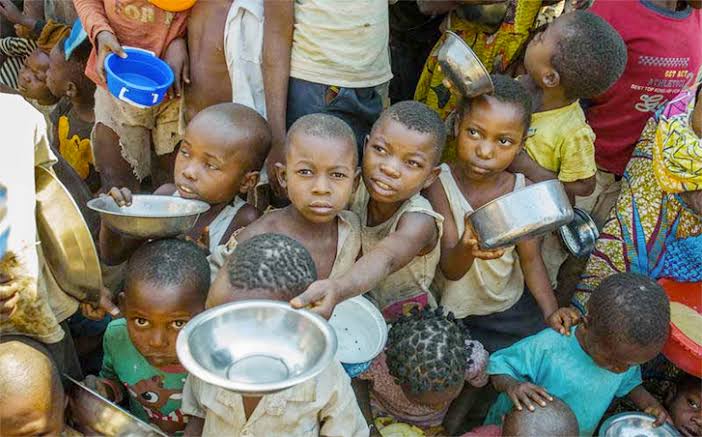No fewer than 31.8 million Nigerians experienced acute food shortages in 2024, the highest number in Africa and one of the largest globally, a new report has revealed.
The Global Report on Food Crises, released by the Global Network Against Food Crises in collaboration with UNICEF and the Food Security Information Network, shows that Nigeria recorded the highest increase in the number of people facing high levels of food insecurity globally in 2024.
An additional 6.9 million Nigerians were pushed into acute food insecurity during the year, accounting for 23 per cent of the global increase. The report attributes this surge to persistent conflict, economic shocks, and extreme weather events that disrupted farming and trade, particularly in the northern part of the country.
The report highlights that Nigeria also had the highest number of people in Phase 3 Crisis of the Integrated Food Security Phase Classification (IPC), among 40 countries and territories assessed. Over 30.8 million Nigerians were in this phase, while more than one million were in IPC Phase 4 — Emergency.
In 2024 alone, flooding affected 1.2 million people and destroyed over 700,000 hectares of farmland. The northeast and northwest regions of the country were among the worst hit, with communities facing displacement and broken food supply chains.
Child nutrition also suffered. The report noted that over 5.4 million Nigerian children under the age of five were affected by acute malnutrition in 2024, including 1.8 million with severe acute malnutrition.
Nutrition outcomes in 84 locations across the northeast and northwest were classified as Serious or worse, with 34 areas falling into the Critical category. Contributing factors included poor diets, limited access to clean water, and disruption to infant feeding due to displacement.
The report further observed that structural challenges persist, with widespread poor crop yields, economic hardship, and limited access to essential farming inputs. In 2024, food inflation remained high, and currency depreciation made it harder for many households to afford basic food items.
By the end of 2024, 3.4 million Nigerians were displaced, while the country also hosted around 100,000 refugees. These trends have placed increased pressure on humanitarian response efforts.Meanwhile, the report projects that 30.6 million Nigerians may continue to face crisis-level food insecurity during the upcoming lean season in 2025. Without urgent intervention, the situation is unlikely to improve significantly.
Culled from The Guardian















Leave a comment